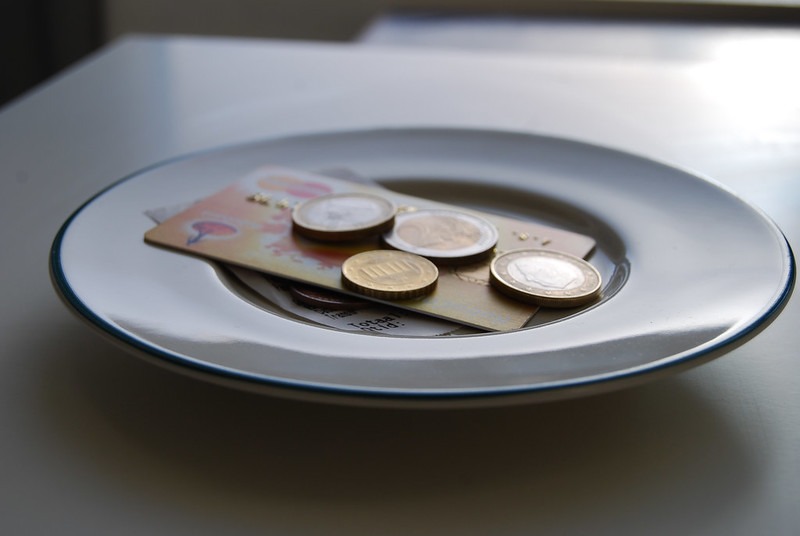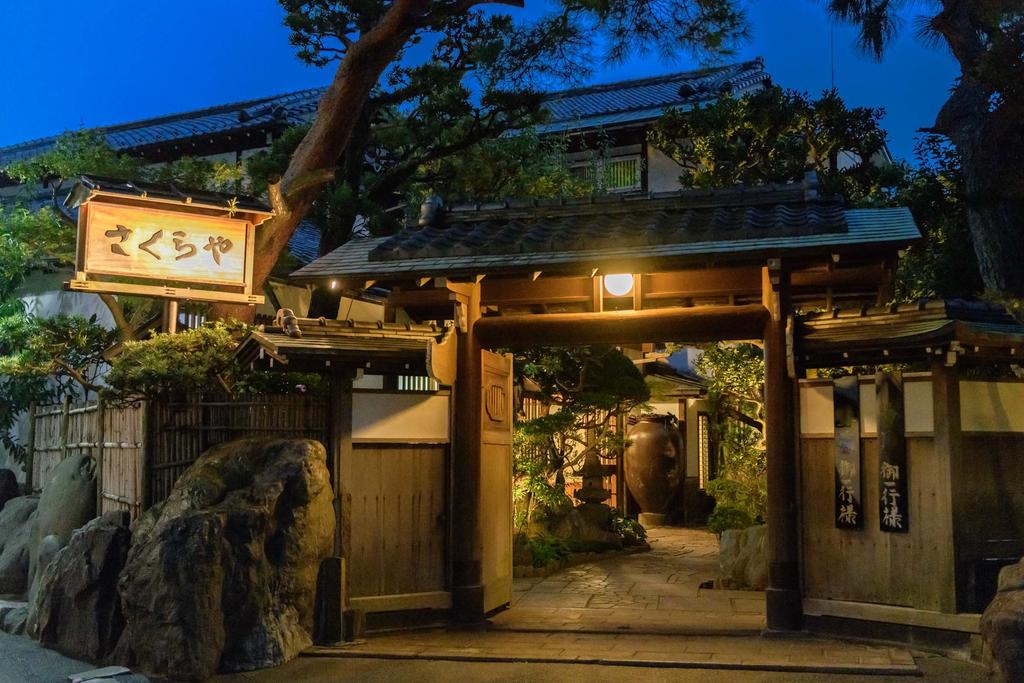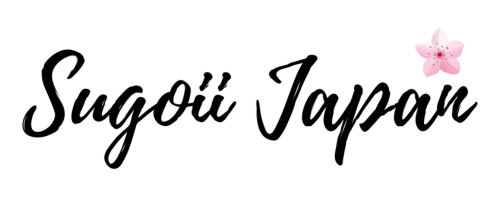Japan is a country that welcomes tens of thousands of visitors as its peak. It’s fast becoming one of the most popular countries to visit in the world and has even landed on the list of becoming one of the most popular places that people want to move to!
Its incredibly alluring lifestyle and perfect mix of traditional culture with modern-day advancements continues to fascinate people from all around the world.
However, as you may have heard by now, it’s a country that runs on fairly rigid rules. Most of the time, foreigners are forgiven for breaking some of the social etiquette expected to be upheld in Japan. It is still polite, though, to make the effort to understand what some of these are so that you can actively avoid offending locals.
Below we’ve listed the top 20 things you should not do when you visit Japan.
Don’t be too hard on yourself and expect that you will be able to remember every single one, every single time. However, be conscious that this is how the Japanese people live and they will appreciate you making the effort!
1. Don’t keep your shoes when entering most indoor areas

Removing shoes when entering a home is a common rule for most Asian households. This is no exception in Japan. However, this country may take it a step further than you are used to.
Some workplaces, restaurants, and even schools and accommodations will expect you to take off your shoes when entering.
For most of the public places, there will be a shoe locker for you to store your shoes in before entering, so there is a safety measure in that. Most of the time, with any restaurants that have tatami mat floors, this is the case.
Accommodations such as traditional ryokan and capsule hotels will also require you to take off your shoes. You will most likely be provided with slippers to walk around in instead.
When trying on clothes, some clothing stores will also require that you remove your shoes before entering the changing rooms.
2. Try and queue up in an orderly manner

Japanese people are known to always queue up in an orderly fashion. Whether they’re waiting for a bus, waiting to enter a shop, or waiting for an elevator, you will always see a single straight line leading up to it.
On train platforms, you will notice that on the floor, it will indicate where you are supposed to stand and line up once the train arrives. This is to assist with the flow of people onto the platform and then into the train.
It is a super-efficient system and one you cannot miss!
3. Japan Etiquette – Avoiding eating whilst walking

In Japan, people do not eat on the go. Unlike in other parts of the world where it is socially acceptable to purchase food and walk along the street consuming it, Japanese people consider it bad manners.
Instead, when food is purchased at street stalls, at vending machines, or in konbinis, most of the time it is consumed right away with its packaging disposed of in the bin provided. This is an important thing to note as there are absolutely no bins provided on the streets.
This rule also extends to most public transports. As they are confined spaces and are usually packed, the smell makes people uncomfortable and the action of eating inside is considered rude.
There is an exception for long distance travelling. When on transports such as shinkansen trains heading somewhere a few hours away, bento boxes are encouraged to be eaten onboard. This is an experience in itself!
Read More: How To Use Shinkansen In Japan
4. Don’t stick your chopsticks vertically into rice bowls

When eating rice, never stick your chopsticks vertically into a bowl of rice. To Japanese people, this reminds them of a funeral where chopsticks are placed like this during the rituals. It is considered a symbol of bad luck.
Instead, when you do need to place them down, always use the chopstick holder provided. Otherwise, just place them horizontally on your bowl or down next to your bowl.
BONUS CHOPSTICKS ADVICE: When eating with other people, always use your chopsticks to place food into your bowl or plate before eating it. Eating straight from a share plate is considered rude.
Read More: 10 Mistakes Not To Do When Eating Sushi In Japan
5. Avoid talking loudly on public transport

This might take some getting used to, but it’s definitely one of the biggest faux pas that foreigners commit when first visiting Japan.
The Japanese people consider trains and buses areas that are public, where anyone and everyone will be travelling, and thus are considerate of other people when using them. This means that they either don’t talk at all, or chat in very low volume if they must.
Many people use these commute times to catch up on sleep, play games on their phones, read, or relax. Thus, talking loudly on the trains disrupts this journey for many people.
If you do accidentally forget and chat at a normal volume, you still definitely be at the receiving end of stares from the locals!
6. Unless you need to, don’t utilise the priority seats, even if they’re empty

The Japanese people are steadfast about following rules, and that includes the use of priority seats on public transport. These are seats which are designated for those who are pregnant, seniors, physically handicapped people, or those who are with small children.
You will find that in most instances, even when there’s no one of the aforementioned capacity around, people will usually leave those seats empty. It is to avoid disturbance and inconvenience if they do happen to show up.
You May Also Like: Why Japanese Are So Polite
7. Don’t blow your nose loudly in public

It is a common theme to be polite, respectful and quiet whilst around other people. This is the case for everywhere around Japan – including but not limited to whilst walking on the sidewalk, walking in the park, and on public transport.
Therefore, if you have a sniffly nose, try and just suck it up until you get home! Maybe not literally, but do carry a tissue around with you and wipe discreetly if you must.
If you do find yourself blowing your nose in public, the noise will definitely earn you some strange stares from the locals!
Many locals don face masks when they’re sick when they head out to public places.
8. Try not to point with one finger

It is generally considered rude to point with one finger at anything and especially anyone.
Instead, the Japanese tend to gently indicate with their hand in the general direction of what they are trying to point out. This goes for when they’re showing directions, pointing out a landmark, indicating a person, or just in general conversation.
On that note, please remember that it is also considered rude to point at something with your chopsticks as well. In the instance that you are using your chopsticks, you may place it down before using your hand to indicate.
You May Also Like: Japan Travel Blog – Must-Know Tips & Tricks
9. Japan Etiquette – Don’t try to leave a tip

Unlike many other countries where leaving a tip is considered polite and well-received by those who provided the service, it is actually the opposite in Japan. The tipping culture is basically non-existent in Japan and some might even go as far as saying it is rude to leave a tip!
Most of the time, the prices in Japan are inclusive of taxes and GST, so all you need to worry about is paying the exact price indicated.
If you do leave a tip, you might find that the staff members will try to flag you down and even run after you to return the incorrect amount!
10. Don’t be taken back when you hear slurping at restaurants – it’s normal!

In Japanese eating culture, one of the highest forms of showing appreciation for a fantastic bowl of noodles is by slurping the heck out of it!
This might sound ridiculous as many of us have been taught not to slurp soup at the table, but it is actually a thing in Japan.
This indicates to the chef that you’re enjoying your food immensely and that he’s done a great job!
11. Try not to serve yourself a drink

In Japan, there is heavy emphasis on the customary drinking process.
As drinking is very much part of socialising amongst peers, friends, family, and colleagues, there is actually a rule to follow and that is: always refill others, but never your own. It is actually considered rude to pour yourself a drink.
Also, when you are pouring someone else a drink, hold the bottle with both hands.
If you are into Japanese Sake, you can read more about it here: Sake Japan.
12. Give and receive with two hands

Following on from what we just mentioned above, when you are giving or receiving anything in Japan, always do so with two hands.
It is considered the politest way to do so and shows respect. Receiving with one hand displays a somewhat flippant attitude.
13. Japan Etiquette – Be punctual

The Japanese people are punctual. Therefore, if you have made friends with a Japanese friend, make sure you leave plenty of time to arrive as at the time agreed on or even earlier. It is considered polite and respectful; that you value their time.
14. Don’t use the wet towels on your face!

Many Japanese restaurants will provide wet towels (Oshibori) for each patron on the table when you sit down.
Note that these are for wiping your hands and nothing else!
There have been many instances where foreigners have mistaken these as a refreshment towel for the face and used it as much. Try and avoid this mistake!
15. Japan Etiquette – Be mindful of taking photos on sacred sites

We know, we know. Japan is absolutely breathtaking every way. Their landscapes, monuments, landmarks, skylines, traditional and skyrise buildings – they’re all magnificent and you really just want to return home with 1000s of images to look back on.
However, if you are visiting a sacred site, please make sure you find out beforehand whether taking photos is prohibited or not. There is usually information on their website or information located just outside with images indicating that no cameras or phones are to be used. Most of the time, it’s the inside of the temple / shrine that is forbidden to shoot.
You May Also Like: The 15 Most Beautiful Torii Gates In Japan
16. Don’t expect to be able to throw rubbish anywhere you want

One thing you’ll notice is that the Japanese streets are generally extraordinarily clean.
As we’ve mentioned earlier, another thing you’ll notice is that the streets literally have no rubbish bins. None. Zero. Zilch.
Instead, you’ll only find trash cans nearby vending machines (for consuming drinks straight away and disposing of them), in train stations or inside konbinis.
This lack of random trash cans along the streets means that everyone usually carries whatever rubbish they have with them until they arrive home or to a convenient store. It’s really helped the country maintain clean and polished streets!
17. Don’t expect to be able to easily converse in English

For a country that welcomes hundreds of thousands of foreigners into their country every year, the level of English spoken is surprisingly low.
When foreigners try to communicate even with the most basic English words, it can be met with frustrations sometimes when the locals appear not to understand.
The best thing to do to counter this would be to learn some basic and simple Japanese phrases before you go. Things like “how to get to a certain place”, “where is the toilet/train station/shops”, “thank you”, “hello/goodbye”, and so on.
If you want a guide to some helpful phrases to learn, check out our article here: 20 Basic Japanese Phrases For Travellers.
By learning this before you travel there, you will save yourself and others a lot of time and headaches! Locals are also generally surprised and happy when they hear foreigners try and communicate in their language.
18. Don’t be surprised at how small hotel rooms are

The land size and population of Tokyo means that they’ve had to get pretty creative with making use of the space. This, of course, means the size of living is substantially smaller than most people would be used to.
Still, many people are shocked when they check into their hotel in Japan to find that it is, indeed, very small! Whilst most will find that they spend their days exploring outside anyway, the thought of coming home to a cramped space might not be appealing.
One thing to look out for would be that many hotels will provide information on the square metre size of the room whilst you’re booking. Note that anything within the 11-15 square metre size range is smaller than most western hotel rooms. It will be cramped for two people.
19. Be mindful of ‘lights out’ times, especially in capsule hotels and ryokan

You’re having a light drink with a bunch of friends, recapping what a splendid day you’ve experienced and laughing at all the fun you’ve had. It’s now 10:00pm and there’s an immediate quiet that befalls around you. It’s curfew time and people actually follow it here!
As you may have noticed, people in Japan are strict rule followers, and hotel curfews are no exception. When it’s time to put the lights out, be mindful of the rest of the guests and either turn down your brightness or maybe even turn it off and turn into bed for the night.
This is especially important if you are staying in a ryokan or capsule hotel.
With ryokan, the walls are not as sound-proof as a normal hotel, and washi paper sliding doors are paper thin. This means if you’re making any type of noise when it is silent outside, people will hear! More rules about Japanese traditional inns here: Ryokan Etiquette.
With capsule hotels, you are likely spending the night right next to someone on your right and left, and sometimes even right above you! With only a wall to separate patrons, you can imagine how sound will travel.
Be considerate of other guests and make note of when curfews are for where you are staying.
20. Japan Etiquette – Thank you and bow!

It is customary in Japan to always say thank you and bow after an event, meeting, social gathering, meal, or even after a brief conversation. This is especially true to your elders!
The Japanese people are big on showing gratitude and this is the most common and acceptable way. You will find that you will be saying it to almost everyone who serves you – from the attendant to sells you a JR pass, to the waitress who takes your restaurant order, to the hotel hostess who shows you your room.
Remember to thank them and slightly bow afterwards, even if you feel a little awkward. After all, there is no such thing as too polite!
—
And there you have it, a full list of things not to do in Japan! Japan etiquette rules may come across as common sense but you will be surprised by how many people forget to follow them once they enter Japan.
Put it down to excitement, or the fact that they don’t generally follow these rules back at home, but foreigners will most likely commit at least one of these faux pas whilst traversing the country.
However, if you being as mindful as you can, that is the best you can do and the locals will appreciate you for it. 🙂
Before you go, check out this article if you want to know why Japanese people always drink iced water.











Tht is why i love Japan❤